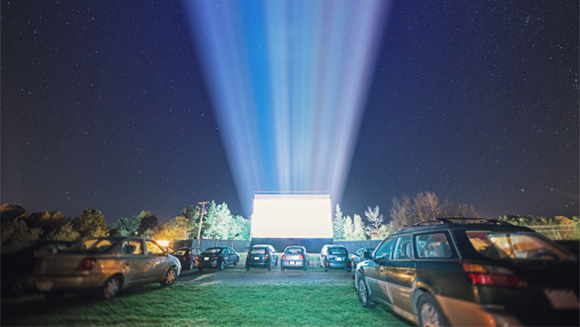A selection of films about the complexity, joy, heartbreak, & tenacity of Black life not just in America, but around the world. To watch during Black History Month and beyond.

Getty Images
It’s now a relatively commonplace idea to acknowledge that we need to broaden the lens of racial, sexual, religious, and ethnic experiences available on screens, big or small. And yet, it cannot be overstated how worthwhile it is for people to feel seen, heard, recognized. During Black History Month it’s a crucial concept, a time to recognize both the real and reel men and women that have led us to where we are.
There is also an idea commonly kicked around that life imitates art (and vice versa). But, for life to truly imitate art, that art must showcase, must command, the full spectrum of possibility of the world. The wonders, heartbreaks, histories that are lived in all forms, be it fantasy or stark realism. Art is doing a great disservice to life, and life back to art, if we don’t set this right.
Finally, if you like this list, it’s worth checking out a smaller, more specific list I put together for Martin Luther King Jr. day a few weeks ago.

Getty Images
Da 5 Bloods (dir. Spike Lee, 2020) – This dynamic, rollicking film has everything we expect from master of the medium Spike Lee; following an aged group of Black Vietnam veterans as they return to the site of the bloody conflict for a pilgrimage, and maybe some treasure too.
The Forty Year-Old Version (dir. Radha Blank, 2020) – A delightfully funny and engaging film about the trials and tribulations of a down-on-her-luck playwright, played by writer, director, producer Radha Blank, who takes up rap as she nears her fortieth birthday.
Learn More About Equity & Inclusion @ Coastline

Getty Images
Blue Note Records: Beyond the Notes (dir. Sophie Huber, 2018) – A documentary about one of the preeminent jazz recording labels in history, Blue Note Records, and the historic number of artists, often Black, that created legendary recordings for the label. Such jazz legends include Herbie Hancock, Miles Davis, Thelonious Monk, and more.
If Beale Street Could Talk (dir. Barry Jenkins, 2018) – Jenkins’ adaptation of James Baldwin’s heart-wrenching, evocative novel hits all the marks; Stephan James and KiKi Layne play the beautiful couple Fonny and Tish as they navigate mid-20th century Black American life, and the heartbreak, loss, joy, and anger that accompanies it.

Getty Images
Daughters of the Dust (dir. Julie Dash, 1991) – The first feature directed by a Black woman to be theatrically released (which should have happened so much earlier); the film follows three generations of Gullah (African-Americans who live in the Lowcountry of Florida, Georgia, and South Carolina) women as they prepare to migrate north in 1902. Stunning visuals, poetic nonlinear structure, and beautiful dialogue in Gullah (a language too) make this a must-see.
Just Mercy (dir. Destin Daniel Cretton, 2019) – Based on the story of Walter McMillian, a Black man wrongfully convicted of murder who successfully managed to overturn the conviction with the help of his defense attorney, Bryan Stevenson (Michael B. Jordan). Stevenson went on to found the Equal Justice Initiative, which fights for prisoners’ rights, as well as helping to form The Legacy Museum and National Memorial for Peace and Justice (commemorating the thousands of Black lives taken violently by lynching), both in Montgomery, Alabama.
Learn More About the Umoja Community @ Coastline

Getty Images
Atlantics (dir. Mati Diop, 2019) – There’s nothing quite like a ghost story, and this one more so than many others. The film uses the supernatural to address a multitude of issues, including poverty and class in Dakar, Senegal. It’s haunting and eerie and will keep you completely engrossed.
The Watermelon Woman (dir. Cheryl Dunye, 1996) – A landmark film in New Queer Cinema; it follows Cheryl, played by writer, director, editor Cheryl Dunye herself, a young Black lesbian working at a video store while simultaneously trying to make a film about a 1930s Black actress credited only as “The Watermelon Woman.”

Getty Images
The Story of a Three-Day Pass (dir. Melvin Van Peebles, 1968) – Set and shot in France after World War II, this sometimes surrealistic film follows a young Black soldier, Turner (Harry Baird), who gets a three-day pass after being promoted; he meets a white, French woman named Miriam (Nicole Berger), and the two start a brief romance that is tempered by the racism around them.
Fruitvale Station (dir. Ryan Coogler, 2013) – Coogler's feature directorial debut is a heartbreaking film about the killing of Oscar Grant (played in the film by Michael B. Jordan), who died on New Year’s Day 2009 in a B.A.R.T. (public transit) station in Oakland, California. The audience, if they’re familiar with the case, knows how the story will go, which makes seeing Grant so full of life, hopes, goals, and roadblocks to be conquered so gut-wrenching as the film heads toward its horrific conclusion.

Getty Images
Wrappin' It Up
People invoke history a lot, especially nowadays, in a broad manner of contexts; often, they make the mistake, perhaps unconsciously, that history is boring, or un-instructive. But history is not a passive artifact, something to be looked back on, while you watch from the sidelines as it is made and remade. No, history is active; it acts upon us, in subtle and not-so-subtle ways; and it can be acted upon. It doesn’t happen until we make it happen, which the many Black activists, writers, and historians around the US and world understand better than anyone.
And it was an idea James Baldwin understood too, and expressed in evocative, stark terms in his 1965 essay “The White Man’s Guilt” in Ebony magazine. As Professor Eddie S. Glaude, Jr. writes in The New Yorker, “Malcolm X was assassinated in February” of that year; “the world witnessed the brutality of Alabama state troopers attacking protestors” in Selma; and the Watts Rebellion broke out in Los Angeles in response to police violence.
Baldwin wrote: “History, as nearly no one seems to know, is not merely something to be read. And it does not refer merely, or even principally, to the past. On the contrary, the great force of history comes from the fact that we carry it within us, are unconsciously controlled by it in many ways, and history is literally present in all that we do."